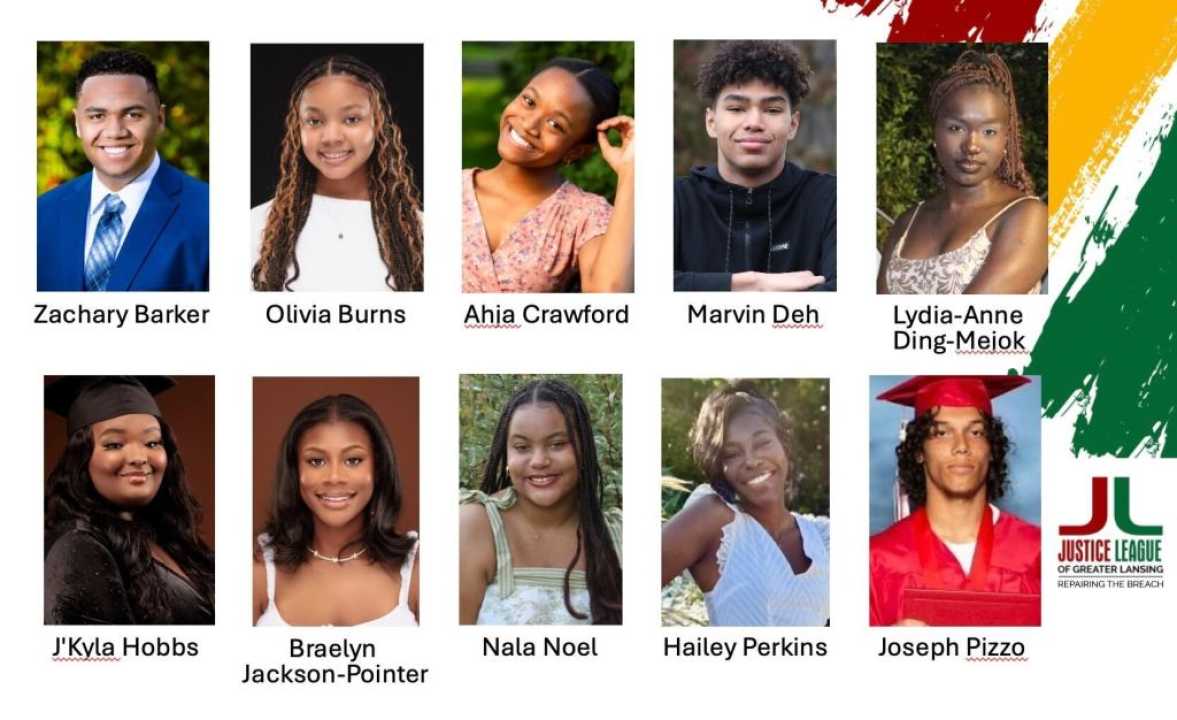Education
Justice League of Greater Lansing Launches Reparations Fund for College Scholarships

As the national conversation around reparations gains momentum, communities across the United States are taking proactive measures to address the lasting impacts of slavery and systemic racism. One notable organization leading the charge is the Justice League of Greater Lansing, Michigan, which was founded in 2021 to focus on healing relationships between white congregants and the Black community.
The Justice League aims to rectify the harm caused by centuries of slavery, economic inequality, and a failure to uphold ethical responsibilities according to religious teachings. In line with this mission, they have established a reparations fund amounting to over $400,000, contributed by local churches and individuals committed to social justice.
In early August, the organization awarded $5,000 scholarships to ten college-bound high school graduates. The recipients were chosen based on their 500-word essays that explored the racial wealth gap and its effects on their families. Academic performance constituted 25% of the evaluation criteria, and finalists underwent interviews.
Willye Bryan, founder and vice president of the Justice League, emphasized the importance of these discussions in her remarks. She noted that many of the essay submissions highlighted how ongoing discrimination roots from historical injustices, continuing to limit African-American families from accessing fundamental wealth-building resources such as quality education, high-paying jobs, and home ownership.
Scholarship winner Zachary Barker, who will be attending Michigan State University, reflects on generational wealth by comparing his experience to prominent families like the Rockefellers and Gateses, stating, “But the rest of us are still struggling to get by.”
Olivia Burns, another scholarship recipient entering Michigan State University’s Honors College, shared her experiences as a Black transracial adoptee. She articulated the contrast between the opportunities available to her adoptive family and the struggles faced by her biological family in relation to education and home ownership.
Marvin Deh, also headed to Michigan State University, pointed out that legal racial segregation was prevalent just two generations ago, creating enduring disparities in wealth accumulation. He remarked, “On paper the odds are ‘fair’ but in reality we still have to face racism, police brutality, injustice, systematic oppression, lack of influence, stereotypes, and societal pressure.”
Willye Bryan further clarified that this initiative is not merely charity aimed at alleviating guilt but a genuine effort to address systemic obstacles to wealth creation. The Justice League plans to expand its efforts beyond scholarships by focusing on sustainable solutions, including promoting Black home ownership and entrepreneurship.
J’Kyla Hobbs, another scholarship awardee, emphasized the necessity for investments in affordable housing, quality education, and reforms in the criminal justice system as pivotal steps toward achieving a more equitable society.












